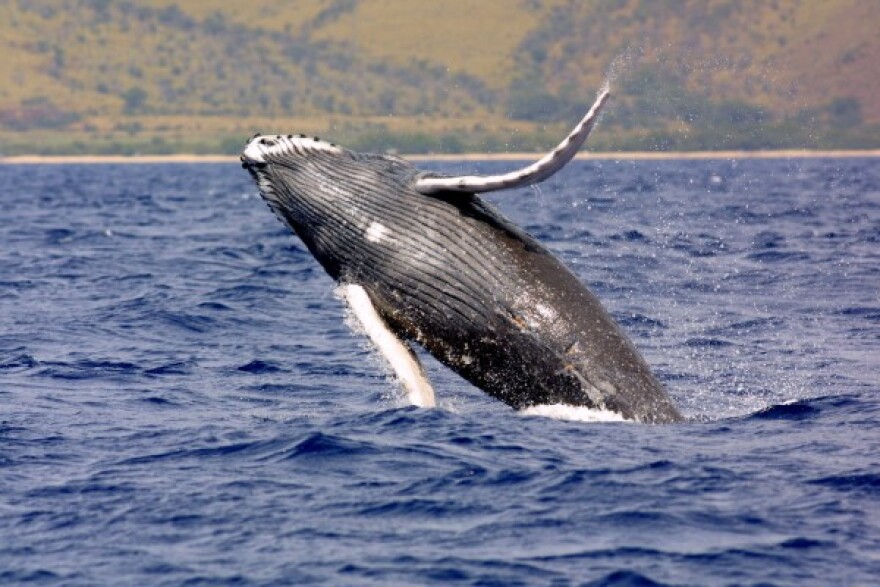The federal government is proposing to remove most humpback whales from the endangered species list.
Forty-five years after the whales were first listed, federal scientists say that most humpback populations - including those common in Alaska - are stable and growing.
Donna Wheating, of the National Oceanic and Atmospheric Administration, calls it “quite a big deal.”
"To be able to bring a species to a point where their population is doing well and they no longer meet those standards for protection ...I think that’s a really important success for us as a nation," Wheating said.
NOAA announced the proposed rule Monday, after a five-year review of humpback research worldwide.
Humpbacks were hunted almost to extinction during the mid-20th century. One estimate puts the total population in the North Pacific at fewer than 1500 whales by the mid-1960s. They were added to the Endangered Species List in 1970.
Now, scientists estimate there are more than 21,000 humpbacks in the North Pacific, and as many as 85,000 worldwide.
NOAA says that most protections will remain in place, even if humpbacks are delisted. Whales in U.S. waters will still be protected by the Marine Mammal Protection Act, while outside the US, the International Whaling Commission maintains a ban on commercial whaling.
NOAA’s Angela Somma says, for the most part, there will be no change in how the species is managed.
"We don’t anticipate that there will really be much difference between how they were protected under the Endangered Species Act versus the Marine Mammal Protection Act," Somma said.
NOAA’s proposal would split the species into fourteen populations, and take ten of those populations off the endangered species list entirely.
That includes most of the whales that feed in Alaska waters. Among those slated for de-listing is the Central North Pacific stock, which breed in Hawaii and feed in Southeast Alaska. The State of Alaska petitioned to remove that stock from the list in 2014.
The public has ninety days to comment on the proposal, and NOAA has about a year to review public input and issue a final rule.

